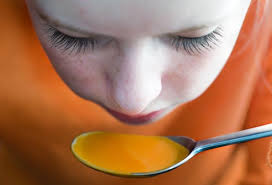It’s January; most of us are still slightly shocked at being back at work, and for those of us using public transport or working in offices it seems walking through people’s sneezes and cough clouds is inevitable.
The difference between a cold and flu
The common cold, including chest cold and head cold, and seasonal flu are caused by viruses, whether you succumb to a virus depends on the strength of your immune system at the time of infection. Flu symptoms are similar but are usually more severe than cold symptoms and come on quickly. Symptoms of flu include sore throat, fever, headache, muscle aches and soreness, congestion, and cough. If you’re otherwise healthy, look after yourself at home by resting, keeping warm and drinking plenty of water to avoid dehydration.If you feel unwell and have a fever, you can take paracetamol or anti-inflammatory medicines such as ibuprofen to lower your temperature and relieve aches. Children under 16 shouldn’t be given aspirin. If its a cold, studies have repeatedly shown that taking a daily supplement of 1 gram of vitamin C or more reduces the incidence, severity and duration. Obviously optimum nutrition, together with immune-boosting nutrients during cold epidemics, can produce even better results. Here’s what to do if you are suffering:
Dietary advice
Avoid all dairy products, eggs and excessive meat or soya consumption since these foods are mucus forming. This is a great time to give your body a high-energy pure food diet packed with fresh fruit and vegetables and their juices. Cat’s claw tea three times a day can support the immune system find it here.
Supplements
• 2 x high strength multi vitamin and multi mineral these are great
• 2 x Antioxidant complex I like these
• 2 × Vitamin C 1,000mg (3g every four hours only when infected) look for these are good – but pay attention to your gut, too much vitamin c can lead to diarrhea
Shani Shaker BA (hons), dipION, mBANT, CNHC, is a registered nutritional therapist with a focus on regenerative and functional nutrition. Based in London her services include one-to-one coaching, group classes and Skype sessions. Contact her at [email protected]
Disclaimer: The information provided is intended for your general knowledge only and is not a substitute for professional medical advice or treatment for specific medical conditions. Please consult your healthcare provider with any questions or concerns you may have regarding your condition. Supplementation should only be temporary. If you’re eating a nutrient-rich diet, extra supplementation should only last for a month or two, just long enough to resolve the deficiency.




